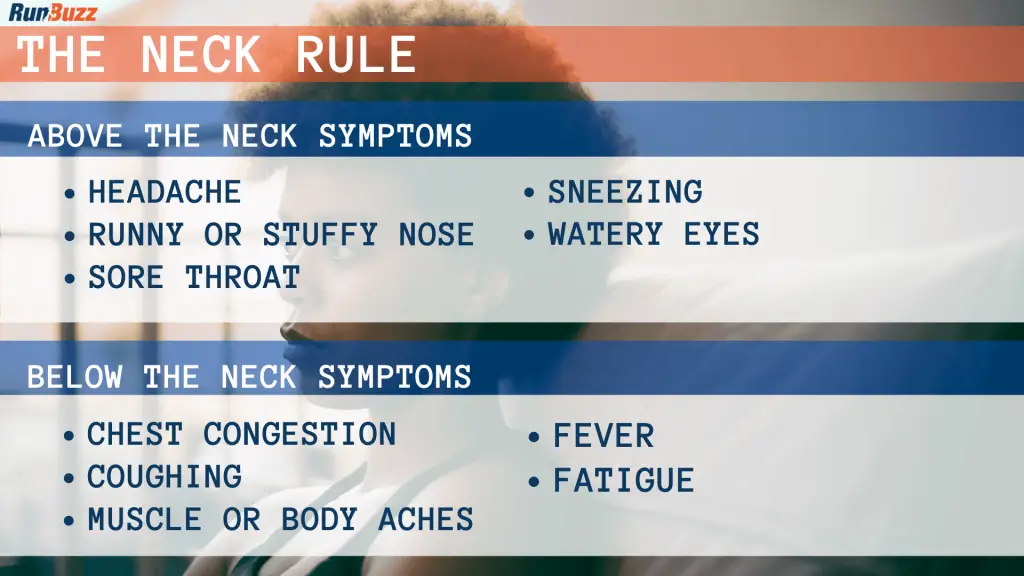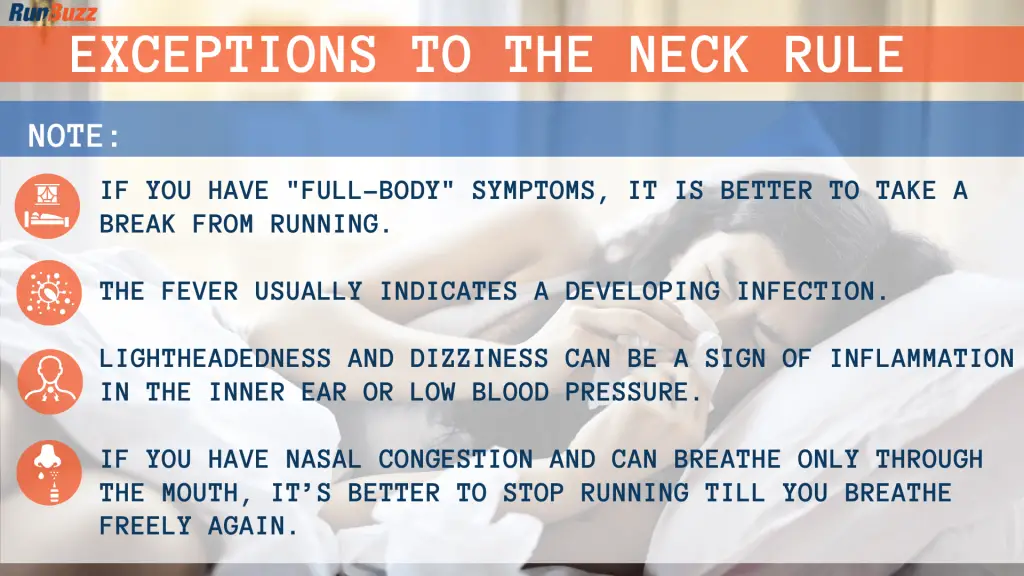Winter is here, which means cold and flu season is upon us.
While proper preventive measures can reduce your chances of getting sick, unless you plan on spending the entire season in a plastic bubble, you’re likely to be exposed to a virus at some point or another. Eventually, you’ll probably need to ask yourself this question: Should I run when I’m sick?
The short answer? It depends.
When your body is busy fighting off an infection, it’s all hands on deck. In other words, using valuable energy and resources to go running takes away from the energy your body can use to get you better, which might mean a longer recovery time. The more severe your symptoms, the more likely it is that you should take a day off training and rest.
However, that being said, I know how hard it is to take a break from running. Even though your nose may be a drippy mess and your throat might feel like you swallowed sandpaper, sometimes you just can’t ignore the itch to run. It can be even more frustrating when you’re preparing for an event!
So, assuming that you’ve got enough energy to go for an easy jog (definitely save the hard workout for another day), use the guidelines below to help you decide if running is the right thing to do.
The Neck Rule
There is a basic neck rule that every runner should now. This rule is based on the location of your symptoms. Before going on a run, you have to assess how you feel and determine whether your symptoms are above or below the neck.

If all symptoms are above the neck (i.e., stuffy nose, sinus pain, sore throat, or swollen glands), it should be OK to exercise. It might not be fun, but sometimes exercise can actually help relieve head congestion because your airways open up to allow for increased respiration when your heart rate increases (just make sure you have lots of tissues handy). Be careful, however, if you’ve taken cold medication – sometimes it can disrupt your equilibrium and cause dizziness, which is definitely not something you want when you’re running on the treadmill or near traffic.
Symptoms below the neck (i.e., cough, chest congestion, upset stomach, or digestive issues) mean that you should probably stay in bed and rest. Why? Because respiratory symptoms in the lungs will impede your body’s ability to transfer oxygen to your muscles. In other words, running is going to be difficult. Really difficult. Your airways will already be irritated, and the elevated breathing required for running will cause further irritation, possibly resulting in coughing, a lot of discomfort, lightheadedness, or dizziness. Stay in bed, drink lots of fluids, and allow your body to do its job.

Digestive Issues
Digestive issues can also wreak havoc on a runner. Your stomach and intestines require blood flow to keep things moving properly. Running diverts blood circulating in the digestive system to places where it’s needed immediately: the muscles. This means that, if you’re already feeling a little queasy, going for a run can actually make you feel a lot worse. Not to mention the fact that, if your stomach has been feeling upset recently, it’s likely that you’re undernourished and dehydrated, both of which can result in really uncomfortable running experience. Stay home and rest until everything is back to normal, and take it slow when you do start back up again.
If you do decide to get your workout in, make sure to scale back your pace and level of effort until you’re close to 100% better. After an illness, your body will likely still be healing, even when your symptoms are almost gone. At this point, a killer workout will just delay your overall recovery. Yes, you might be able to suffer through it, but is it worth it when it means you might relapse or need an extra few days to really feel normal again? Allow yourself a day or so of easy workouts before you get back to your regular routine.

Use Common Sense
- If you have symptoms stuffy nose, sinus pain, sore throat, reduce the intensity and duration of your training by 50%.
- If you develop symptoms below the neck or “full-body” symptoms, stay at home and let yourself fully recover. Running with the achy muscles or fever is not a good idea. It may just increase the time it’ll take you to recover.
- When you feel better, avoid overtraining. Try to gradually increase your distance and intensity of your running sessions.
- When you’re sick and displaying symptoms, you’re contagious. Wash your hands regularly and keep a safe distance from others.
- Avoid running a public place, such as a gym, to prevent the spread of illness to others.

- About the Author
- Latest Posts

Steve Carmichael is a running coach, sports performance coach, nutrition coach and has been a recreational runner for over 18 years. Steve holds multiple certifications as a certified running coach through the RRCA and USA Track and Field as well as he is a NASM certified personal trainer, and PN1-L1 certified nutrition coach.
Steve has been coaching since 2010 and has helped thousands of runners online and in the Central Ohio area maximize performance and run injury-free.
Steve is the founder of RunBuzz and Run For Performance.com. If you are interested in working with Steve though his online running and strength coaching services, feel free to reach out.

